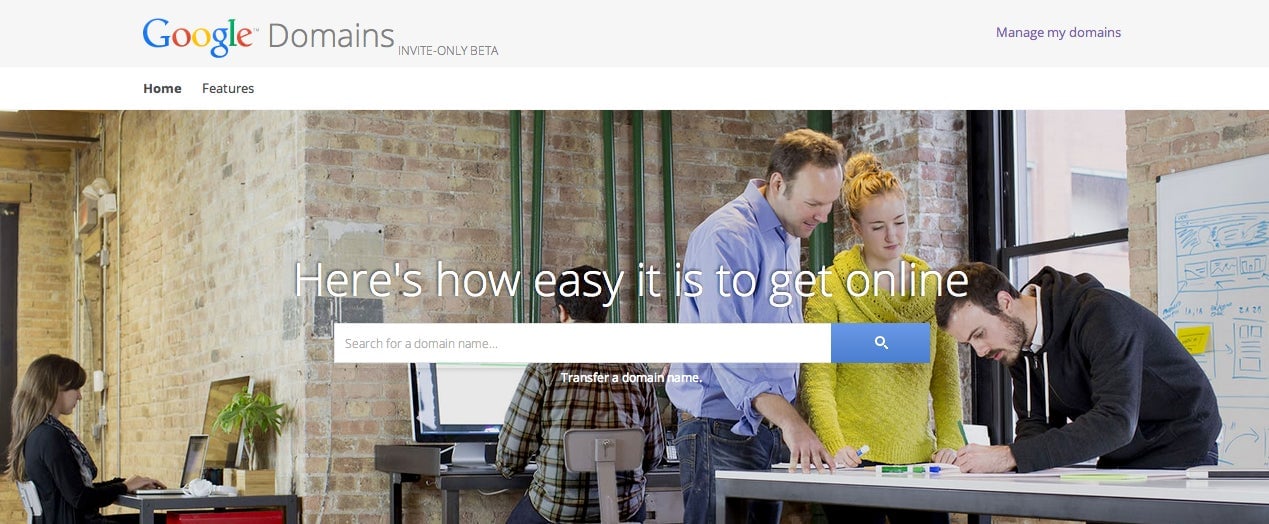Google killed the web address—so why is it trying to sell you one?
When Google released its web browser, Chrome, in 2008, the most striking thing about it was that it merged the web address bar—where you type in qz.com—with the search bar. It called this the “omnibox.” As new domain names rolled out this year, observers wondered what the point was when nobody remembers, let alone types, full web addresses any more. Google has also toyed with the idea of further obscuring the web address in Chrome.

When Google released its web browser, Chrome, in 2008, the most striking thing about it was that it merged the web address bar—where you type in qz.com—with the search bar. It called this the “omnibox.” As new domain names rolled out this year, observers wondered what the point was when nobody remembers, let alone types, full web addresses any more. Google has also toyed with the idea of further obscuring the web address in Chrome.
But no matter how much browsers hide the web address, it isn’t going anywhere. Addresses remain fundamental to the architecture of the web. Without them websites would be identified only by a series of numbers. Regular internet users would have no idea where they are on the web, or whether to trust the site. Moreover, the web address is also an essential piece of marketing for any business that needs an internet presence (pretty much all of them).
Little wonder then that Google is getting into the domain-name-retailing game now dominated by the likes of GoDaddy. The web giant yesterday, June 23, launched a beta version of Google Domains, which will eventually allow people to register their domain names with Google. It promises reasonable prices ($12), integration with website builders, and lots of free extra features, including privacy protection and email. Up until now, registering a domain has not felt easy; Google could make it seem easy.
And Google also has applications for dozens of new top-level-domain names (TLDs), which aren’t particularly well known outside the early-adopter circles. Google Domains could help push those into mainstream awareness too. Others in the domain-name industry have treated Google’s move with enthusiasm. “Google’s entrance into the registrar market might be the best thing yet to happen to new TLDs. Awareness is surely about to grow,” writes Andrew Allemann at Domain Name Wire.
But Google isn’t getting into the business to help the industry; nor are domain registrations likely to be a big revenue source for the company. The official announcement offers some clues as to why Google is entering a decidedly 20th-century-style business now. From Google’s announcement:
It’s 2014 and it seems obvious, but across laptops, tablets and mobile devices, a website is one of the first places people go to find information about a business. But amazingly, our research shows that 55% of small businesses still don’t have one.
So as we explore ways to help small businesses succeed online (through tools like Google My Business [http://goo.gl/Ajvbn5] ), we thought it made sense to look more closely at the starting point of every business’s online presence – a website. And that starts with a domain name.
The reason for Google’s move into domains, a crowded market with hundreds of players, is simple. Registering a domain remains complicated. Complaints about existing registries abound. Some offer options for hosting or website building, but not all.
Google figures that web users trust its brand, for the most part. If Google can make it easier to buy a domain, perhaps that will convince more people to build their own websites. The more businesses have websites, the more they will need a way to drive traffic to those sites. And what better way to do that than to advertise on Google? The move into domain names then is not so much a new business for Google as it is a way to bolster its existing business.